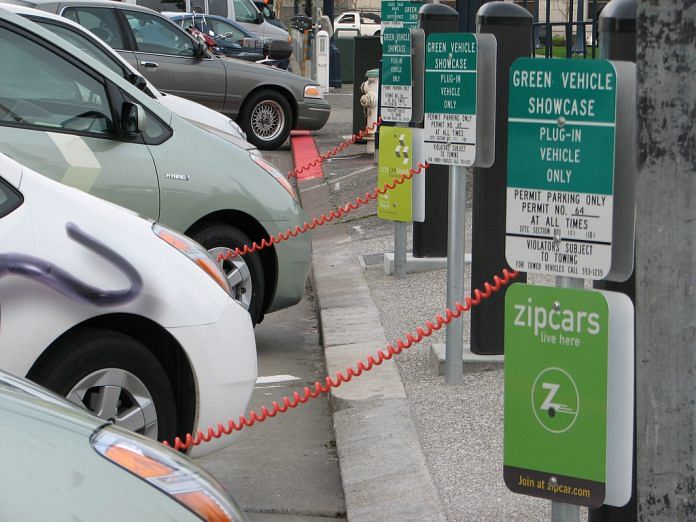In this piece, Murugan relates how Mahatma Gandhi’s ideas helped him navigate a personal crisis, when in January 2015 the controversy surrounding his book Madhorubhagan (One Part Woman) had escalated to the point of posing a danger to his life, family and livelihood. Ideas absorbed while reading Gandhi’s autobiography, Sathiya Sodhanai (My Experiments with Truth), as well as writings on him by lyricist Kannadasan and social activist and leader Periyar, helped him get through the period.
Murugan learned from Gandhi the merit of “forgiveness, solitude and silence”. Gandhi believed seeking forgiveness and granting it were high virtues. When Murugan wrote a letter of forgiveness to those who opposed him, he realised that it was not a sin. “Distancing” oneself was also a Gandhian trait, as it could pacify a “turbulent situation” and render “weapons of the opposition futile”.
Silence was one of Gandhi’s “sharpest weapons” to avoid words from being misconstrued. The author’s decision to not talk publicly made him realise the “armour-like” quality of silence Gandhi spoke of.
Thus, Gandhian philosophy is still quite relevant in “our personal lives, our societies and our times”, concludes Murugan.
Vivek Katju | Former secretary, Ministry of External Affairs
The Times of India
Katju writes that Prime Minister Narendra Modi’s UNGA address effectively communicated India’s resolve to counter terror, calling out the world’s “lack of unanimity among us on terrorism”.
Tackling terror has “slipped in the global agenda”. After 9/11, the West was determined to eliminate groups like the Al-Qaeda, ISIS and their offshoots. But now that it has contained them, its focus has shifted to prevent the “radicalisation of its own Muslim minorities” and stop “financial flows to terrorist organisations”. The threats of “radical Islamic terrorism” that confront the West, however, are not the same for India, he writes.
India, he adds, needs to take into account the dependence of the US on Pakistan to “get out of its Afghanistan mess”.
Islamic countries like Turkey, Malaysia and Pakistan are looking to shift the international attention from Islamic terror to Islamophobia, and have plans to start “an English language TV channel to educate the international community on Islam”. India should be careful as it may become a “vehicle of continuous anti-India propaganda”, adds Katju.
On climate, connectivity, maritime security, India is reshaping the world order
Dhruva Jaishankar | Director, US initiative at the Observer Research Foundation
Hindustan Times
Jaishankar writes about India’s role in international affairs as the major world powers remain preoccupied with internal issues. He discusses three areas in which India has made strides.
The first is climate change. India was earlier projected as a “reluctant actor” by the West on climate change agreements. But now the US has withdrawn from the Paris climate agreement while India has doubled down on its sustainable development commitments and rated better than most countries on the Climate Action Tracker.
Second, with regards to connectivity, India has “articulated a set of normative principles” including sustainable financing, “employment, the environment”. These principles are now global norms, proving India was “ahead of the curve”.
Third, in terms of maritime security in the Indian Ocean, it has increased its naval patrols, improving its logistical networks and enhanced its ability to monitor maritime traffic. Internal obstacles like “underwhelming” economic growth and concerns about the J&K issue remain. But it is clear that “India is not just sitting on its hands as the world turns”, concludes Jaishankar.
The real story of the country’s recent corporate tax overhaul
Indira Rajaraman | Economist
Mint
In her piece, Rajaraman discusses a feature of the recent corporate tax rate cut that has been fairly under-reported — the “two-track option” of opting for either a new flat rate of 22 per cent or existing slab rates.
Though sceptical of the new flat rate, Rajaraman does point out that it could free companies from the hassles of getting valid exemptions past tax officers. She makes special mention of a “privileged subset of the corporate world” — companies starting production before 31 March 2023 that will have a flat rate of 15 per cent.
She criticises the fourth bi-monthly monetary policy announcement (announced on Friday) was being done in the backdrop of a “fiscal fog”. Assurances from the finance ministry that “the flurry of fiscal measures” in the last two months will not breach the fiscal deficit target “do not have a plausible ring”, she explains.
Even the ₹1.45 trillion revenue loss estimate looks overstated, writes Rajaraman, and is probably an aggregate estimate that includes “the rollback of the surcharge on capital gains”.
Electric cars and the coming revolution
Aakar Patel | Executive director, Amnesty India
Business Standard
Patel writes on the soon-to-come electric car revolution and states that if automobile companies don’t jump on the wagon soon, they will be left behind.
This shift to electric cars is already evident in Europe, he writes — these cars were the bestselling automobile in Norway and The Netherlands. “Even in America, the best-selling car by value is an electric car, the Tesla Model 3… outselling Audi, BMW, Mercedes-Benz, Lexus and Jaguar combine,” he adds.
According to Patel, existing automobile companies have no real advantage in the production of electric cars and “may even be handicapped”. In terms of battery, a company like General Motors has “no expertise in this field and it is too specialised for them to now catch up”. Another significant aspect of an electric car is software and car-makers are lost there as well.
In India, Union minister Nitin Gadkari has said that he would never allow electric cars since it would endanger jobs. Patel slams this argument, calling the minister a “Luddite”,
“There are opportunities of historically unprecedented scale [in electric cars]” adds Patel.



